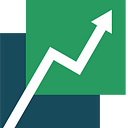IPO Bonanza
Two weeks ago on December 9th, two famous tech platforms delivered back-to-back blockbuster IPOs in their debuts on the public market. The IPO price is what institutional investors (like mutual funds) — not regular investors — get to pay per share.
- DoorDash: The IPO was priced at $102 a share. By the time shares hit the NYSE, they were already trading at $182. Now Dash has a $59B market value, more than 3 times its valuation in June($18B).
- Airbnb: It IPO’d at $68, but opened on the Nasdaq at $146. Its market value soared to over $100B, This makes Airbnb worth more than Lyft, Hyatt, Expedia, and Chipotle combined. This is also 5 times Airbnb’s valuation in March($20B).
Despite a pandemic and an economic crisis, 2020 has been a blockbuster year for IPOs overall. There’s a few explanations for what could be going on:
- Stock-timism: The stock market is at record highs, with tech stocks leading the charge. The Nasdaq Index is up 36% this year — tech companies want to strike while the market is hot.
- Instability of traditional assets: Many traditional assets such as treasury bonds have some of the lowest return rates ever, prompting more and more investors to invest in the stock market.
Interest rates… Stocks have rallied to record highs partly because interest rates are at record lows. Super-low interest rates can inflate the value of assets like stocks because they make things like savings accounts seem less attractive. If the APY on your savings account is higher, you’re less likely to invest in stocks, which carry risk. If the interest rate is nearly nothing, you’re probably more likely to invest, driving up stock prices.
This begs the question: are we in another tech bubble? In 2000 the “dot com bust” (as hailed by many institutional investors) was a crash of many tech stocks resulting in the loss of $8T+ in wealth. Many attribute the crash to an increase in internet trading. The internet served as an easy access to trading for a lot of traders who lacked the required experience. Sound a little familiar? With the rise in modern trading apps like Robinhood and practices like Fractional Shares more and more retail investors to have easy access to trading. The only thing left to do now is to wait and see if 2021 will be next 2000.
